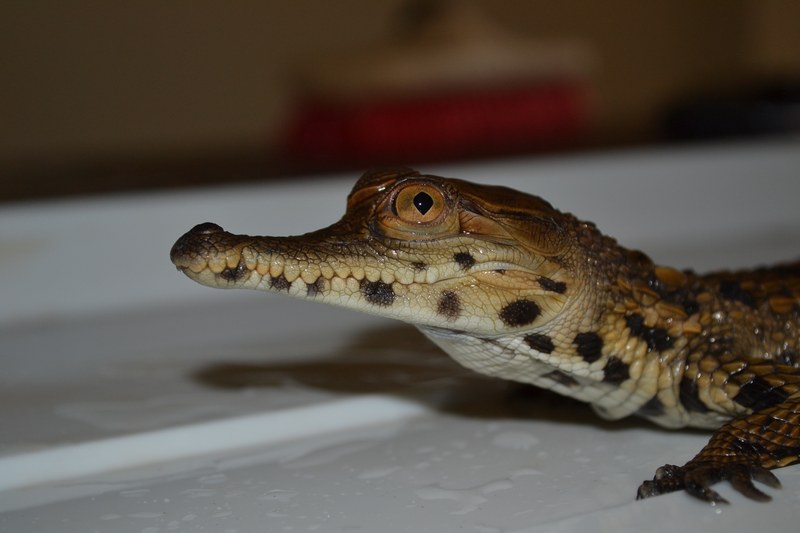
Saving a Species
Success for zoo staff who traveled to Ivory Coast to bring critically endangered crocodile back from the brink
ALBUQUERQUE, NM - The ABQ BioPark Zoo is part of a dramatic conservation story - half-way across the world.
In just two trips to West Africa's Ivory Coast since 2014, staff has helped the Zoo National d'Abidjan (ZNA) go from a struggling breeding program for the critically endangered West African slender-snouted crocodile to producing 50 hatchlings. There are only about 50 of these crocodiles left in the wild.
"We were happy, jumping up and down when we found out about the hatchlings," said Matt Eschenbrenner, supervisor of herpetology at the zoo. "This is great news when you have so few in the wild - they deserve all the help we can give."
The West African slender-snouted crocodile is critically endangered due to the bush meat and leather trades, large-scale habitat destruction and competition for fish with artisanal fisheries. Though ZNA housed the largest captive population in the world, they struggled with breeding because zookeepers lacked supplies and training.
The first 24 crocodiles were born less than 6 months after the ABQ BioPark's initial visit in 2014 and the remaining crocodiles were born in June/July 2015. In September 2015, ABQ BioPark staff returned to the zoo to give health exams for the recent hatchlings - they also gave more breeding and dietary recommendations and will continue to be involved with the project in the future. The crocodiles will be released into the wild once they are large enough.
ZNA is also recovering from the effects of two civil wars that lasted from 2002-2011 - the fighting occurred just outside ZNA's gates and many animals starved to death.
To help ZNA get back on its feet, ABQ BioPark staff assisted in other areas across the zoo including welding, hoof stock and examinations. In addition, ZNA also benefited from new gear gifted by the BioPark crew - work boots for the crocodile keepers, work shirts, a camera, a tablet, a second reptile incubator and numerous veterinary supplies.
Conservation is an important part of the ABQ BioPark's mission and many programs at the ABQ BioPark support local, state-wide and international conservation efforts.
The trips were funded by the New Mexico BioPark Society's Conservation Fund.
